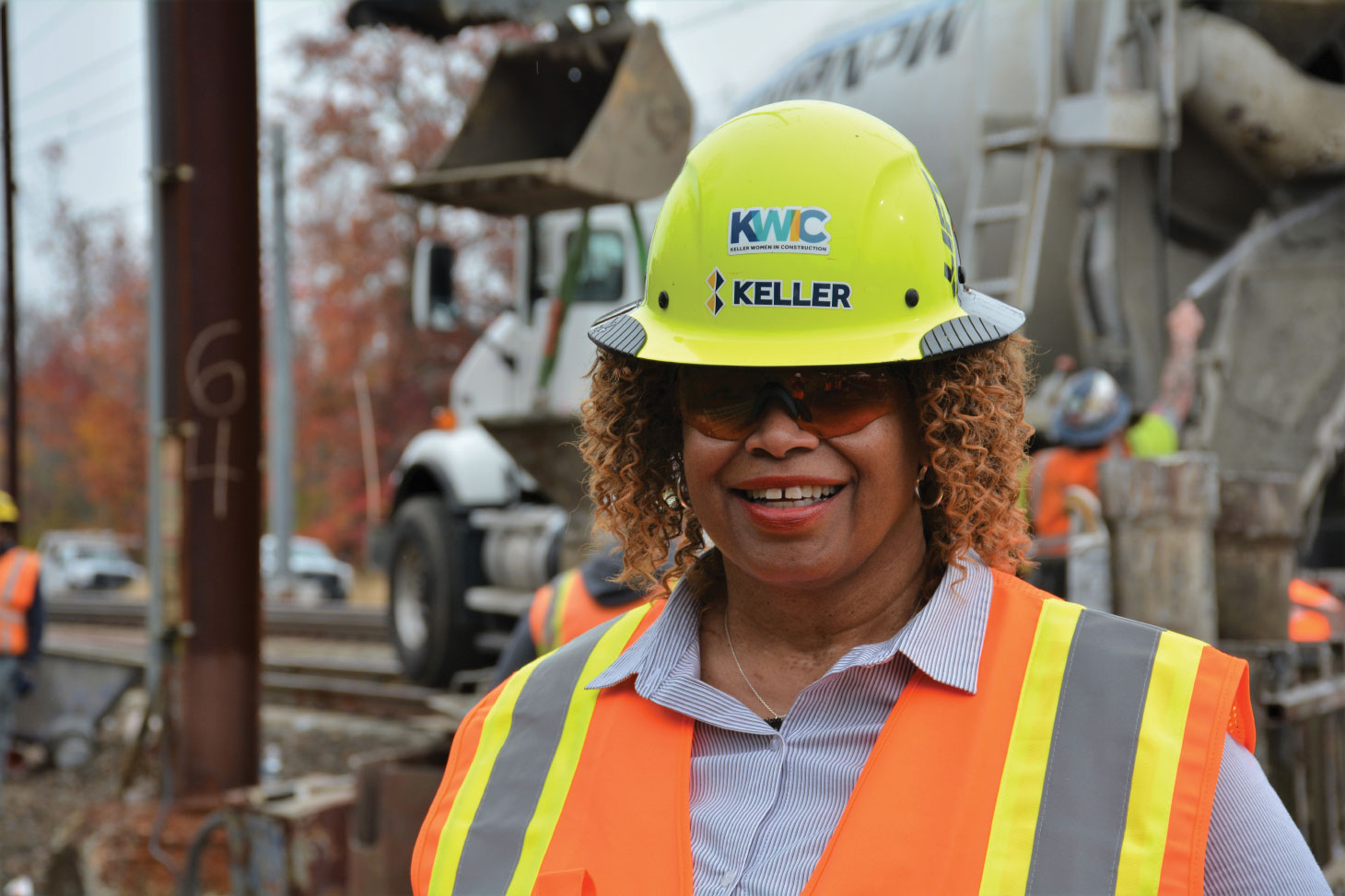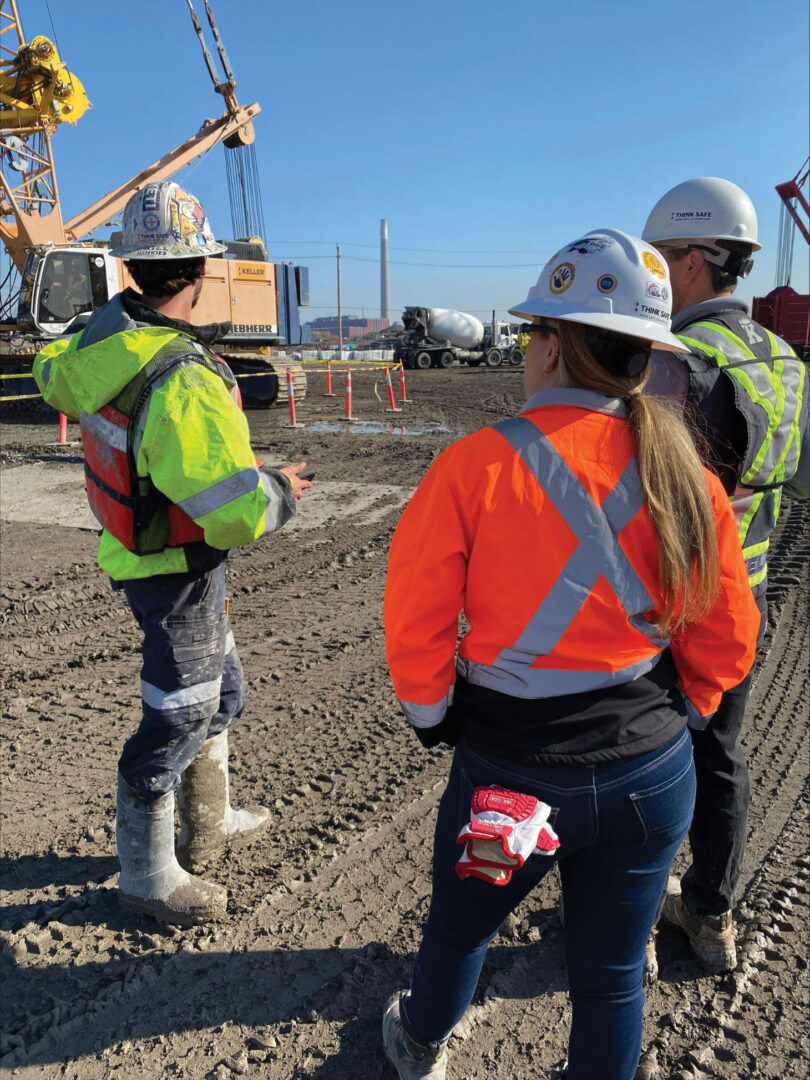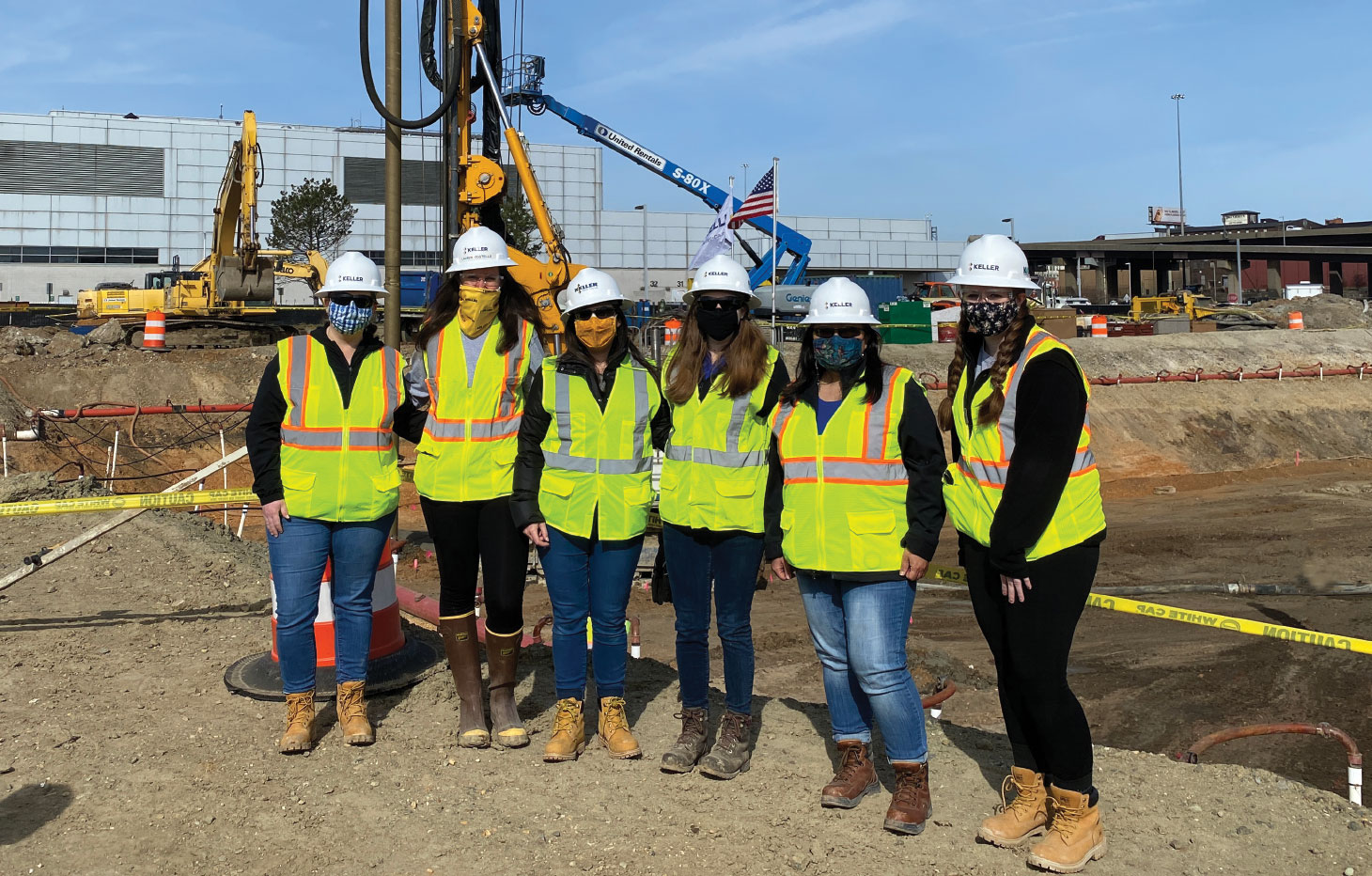
To provide maximum and effective protection against injury, personal protective equipment (PPE) must fit properly and allow a worker to move around to do their job. However, despite calls for change that began decades ago, women workers are still being provided PPE designed for men’s bodies, according to the “Canadian Women’s Experiences with Personal Protective Equipment in the Workplace,” a 2022 report published by the CSA Group (formerly the Canadian Standards Association). Its author, Anya Keefe, M.Sc., surveyed almost 3,000 Canadian women whose jobs necessitated the daily use of PPE.
More than 80 per cent of them said they experience one or more problems with their PPE, including improper (50 per cent) or uncomfortable (43 per cent) fit and inadequate selection (35 per cent). Of the women surveyed, 58 per cent report that they use PPE that is the wrong size at least some of the time; 28 per cent don’t wear all the required PPE at work because of issues with fit.
More than a third use workarounds to try to fix these issues for safety, comfort or improved fit. That might include using rubber bands, safety pins or duct tape to shorten fall-arrest gear or sleeves, to prevent their pant legs from tripping them or to secure work gloves. Incidents related to their PPE, including injuries, were reported among 40 per cent of the women Keefe surveyed.
Improperly fitting gloves or other clothing can provide inadequate coverage for heat or chemical exposures, for example, or get caught in machinery or inhibit full range of motion, “potentially leading to serious injury or death,” states the report.

“Women continue to be differentially impacted by workplace hazards,” it said. There is no consistency in PPE standards across Canada. Even when women try to source and pay for PPE specifically designed for women’s bodies, such items are often difficult to find. Keefe found that PPE manufacturers often “shrink it and pink it.”
However, “women are not merely scaled-down versions of men,” the report states. Although it’s recognized that women typically have wider chests and hips than men, they also have shorter torsos and legs, smaller hands and differently proportioned fingers.
Fitting women properly
PPE is part of a worker’s equipment, “part of their uniform,” says Marisa Schleter, marketing and communications director at Keller North America. Worldwide, Keller’s 21 business units employ approximately 10,000 people in 40 countries across five continents. Women comprise about 11 per cent of the company’s North American workforce, a sizeable number of whom are in operations, Schleter says, that is, engineers and other on-site workers.
“Our women want to be seen as part of the team. They don’t want a different colour uniform,” she said. When Keller Women in Construction (KWIC) was established in 2021, sourcing suitable PPE was one of the group’s first challenges.
“As a resource for women to connect and share,” said Schleter, “one of the first things they did was create an employee intranet site that included manufacturers making safety equipment designed specifically for women, products that our female employees use and like.”
“One of the first things KWIC did was put together a resource of manufacturers that make safety equipment designed specifically for women.”
Marisa Schleter, Keller North America
In that same year, Jo-’Anthion Harris, Keller North America’s health, safety, environment and quality (HSEQ) co-ordinator and KWIC steering committee member, partnered with a few other member companies and the International Association of Foundation Drilling (ADSC), which had identified the need as well, to work with the manufacturer Radians to design a vest.
“We’re so excited for these vests,” said Harris. “We worked with a local supplier to source them and then ordered them for all our employees across North America.”
Radians already had a line for women, including some vests, but Keller took it a step further to design something that would have the correct pockets and connections for women who work in the field, specifically for geotechnical construction.
The custom-designed vest, tailored to fit women’s body shapes and reduce excess fabric, also includes an inconspicuous waterproof pocket to hold standard-sized feminine hygiene products.
“It’s not something that you want to bring up or be concerned about with co-workers, but it’s very real,” said Harris. “We want women to be comfortable, and bringing a purse or handbag on-site isn’t always possible or convenient.”

Once the vests arrive, they’ll also be available on the open market through local suppliers. “Different contributors to well-being are closely linked and can impact each other,” Keller’s diversity, equity and inclusion statement notes. “We talk about distracted driving – well, the same thing could be said about PPE,” said Schleter.
When women are wearing PPE that is marketed to be ‘unisex,’ it’s often oversized, uncomfortable and distracting. Beyond that, oversized clothes can cause more incidents than they prevent if they lead to tripping or getting caught in machinery. However, PPE goes beyond ill-fitting clothes. In construction, fall-protection harnesses are used for people who are working at heights, and having a harness that doesn’t go small enough or fit properly might be less effective in the event of a fall. Ill-fitting gloves, often required in the field, can be caught in machinery, or not adequately protect hands from grout or chemicals. Where accuracy matters, ill-fitting gloves inhibit fine motor skills to do stress and quality tests, or changing or setting small dials out in the field, affecting precision.
Leveraging their network and making an impact
Keller established a pan-global PPE project team that includes women from all of Keller’s divisions in North America, Europe, Asia-Pacific, Middle East, and Africa. Their goal is to share best practices, where they’ve seen success in sourcing and providing appropriate PPE, and then sharing that across the business. They also want to raise the standard and influence change across the industry.
Having a strong network of women and then leveraging their contacts in the industry has really helped Keller with sourcing. With a company of their size, Keller also hopes their feedback is influential to the manufacturers and vendors. Two of Keller North America’s HSEQ staff, Catherine Chauder and Kandra Smith, have also developed relationships with Canadian-owned distributors and manufacturers, including Latoplast, which is in the process of launching its new Forcefield women’s line, and Lawlor Safety, which recently launched its own women’s line. An extensive range of PPE for women from Swedish company Blåkläder is also available in Canada, including maternity workwear made with expandable panels, a collection the brand advertises as “revolutionary.”
“Knowing that our people are safe and well is more important than anything else for us; it’s at the core of our culture and defines who we are as a company,” said Sandy-lee Connolly, Keller’s head of talent and diversity. Keller is focused on driving the right behaviours on-site and enhancing their site culture in general to ensure people feel psychologically safe.
“We want to ensure that we never tolerate harmful behaviours like bullying, harassment or discrimination, but beyond that, we’re looking to ensure that everybody feels included and respected,” Schleter said. “It’s about not feeling like an afterthought on-site. It’s that ‘Keller is prepared for you’ when you show up on a jobsite, and that goes a long way to making employees feel included.” ![]()